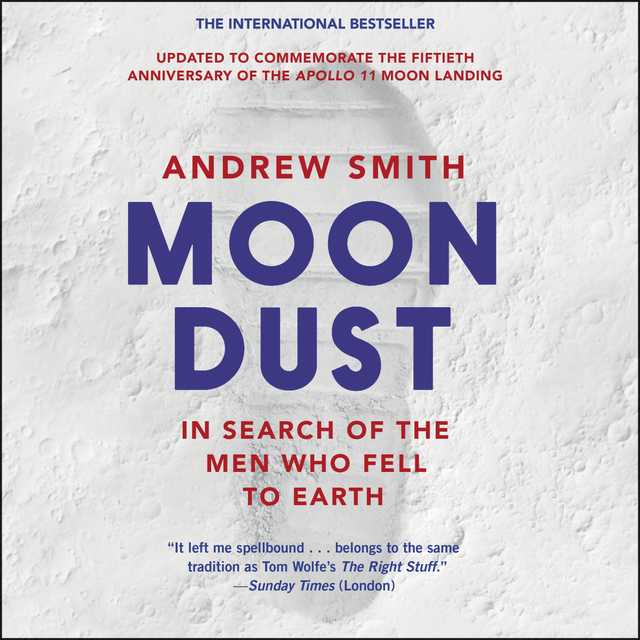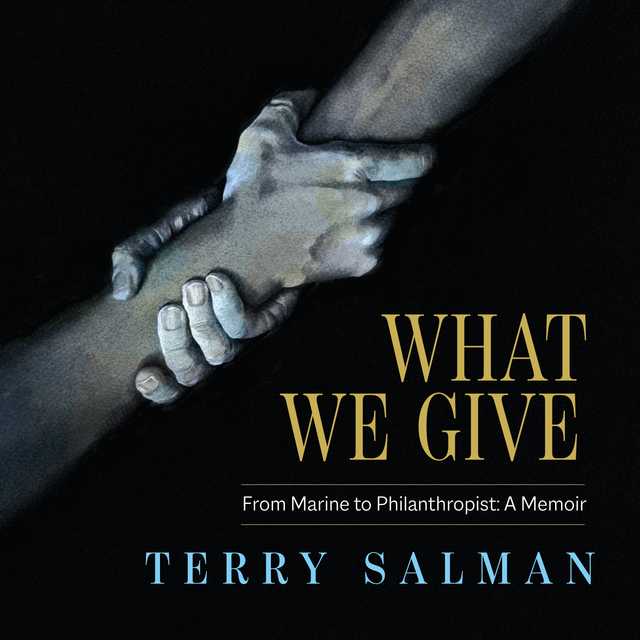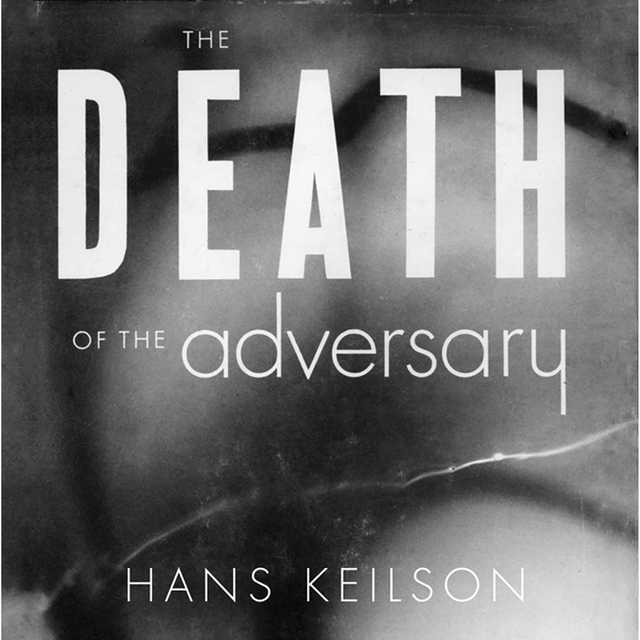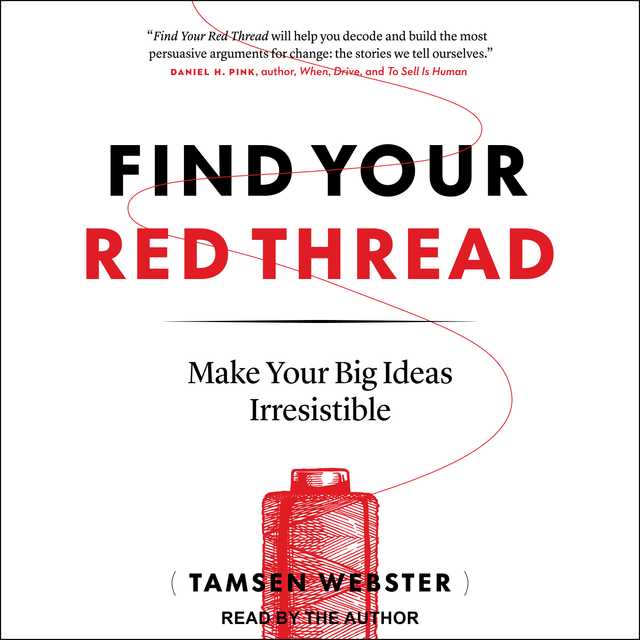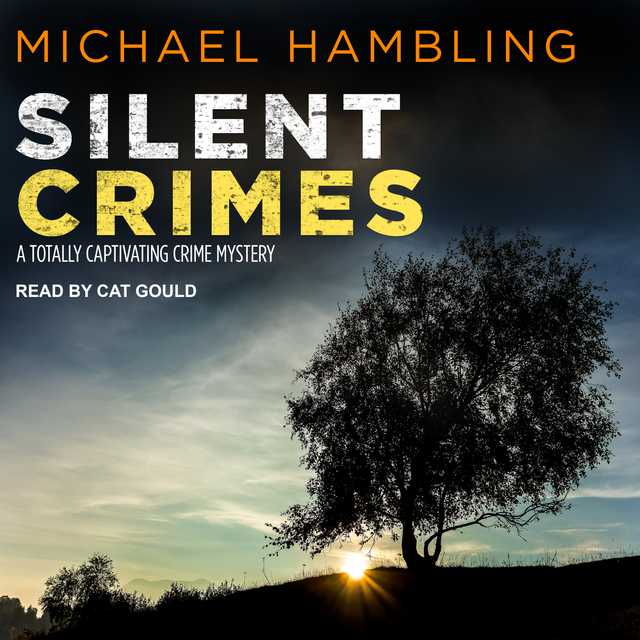Moondust Audiobook Summary
In time for the 50th anniversary of the Apollo 11 Moon landing comes this edition of journalist Andrew Smith’s book, now updated with a new Afterword, that tells the fascinating story of twelve astronauts who ventured to space, and his interviews with nine of the surviving men.
“Smith’s book succeeds…because he bungee-cords together so many intriguing digressions.”–New York Times
The Apollo lunar missions of the 1960s and 1970s have been called the last optimistic acts of the twentieth century. Twelve astronauts made this greatest of all journeys and were indelibly marked by it, for better or for worse. Journalist Andrew Smith tracks down the nine surviving members of this elite group to find their answers to the question “Where do you go after you’ve been to the Moon?”
A thrilling blend of history, reportage, and memoir, Moondust rekindles the hopeful excitement of an incandescent hour in America’s past when anything seemed possible as it captures the bittersweet heroism of those who risked everything to hurl themselves out of the known world–and who were never again quite able to accept its familiar bounds.
Other Top Audiobooks
Moondust Audiobook Narrator
Matt Jamie is the narrator of Moondust audiobook that was written by Andrew Smith
Andrew Smith has worked as a broadcast commentator and an investigative feature writer for publications including The Face, The Guardian, and the Sunday Times. He has also written and presented radio series and films for the BBC, including the acclaimed documentary Being Neil Armstrong. He lives with his wife, Jan, in the San Francisco Bay Area.
About the Author(s) of Moondust
Andrew Smith is the author of Moondust
More From the Same
- Author : Andrew Smith
- In the Path of Falling Objects
- The Size of the Truth
- Ghost Medicine
- Grasshopper Jungle
- The Alex Crow
- Publisher : HarperAudio
- Abraham
- American Gods [TV Tie-In]
- Dead Ringer
- House of Sand and Fog
- Prey
Moondust Full Details
| Narrator | Matt Jamie |
| Length | 14 hours 6 minutes |
| Author | Andrew Smith |
| Category | |
| Publisher | HarperAudio |
| Release date | June 25, 2019 |
| ISBN | 9780062937469 |
Subjects
The publisher of the Moondust is HarperAudio. includes the following subjects: The BISAC Subject Code is Science, Space Science
Additional info
The publisher of the Moondust is HarperAudio. The imprint is HarperAudio. It is supplied by HarperAudio. The ISBN-13 is 9780062937469.
Global Availability
This book is only available in the United States.
Goodreads Reviews
Bionic Jean
September 05, 2022
Moondust: In Search of the Men Who Fell to Earth is a unique account by the journalist Andrew Smith, recording the experiences of the 9 remaining astronauts who went to the moon. As he says:"Of over 400 people who have now been into Space, only 27 have ever left Earth's orbit and seen her from the perspective of Deep Space - all American and all between the Christmases of 1968 and 1972." In 2005, Andrew Smith realised that there would only be a short time left for this account to be written from their perspectives. Only a dozen astronauts had actually landed on the Moon. The majority of the Apollo astronauts merely orbited it. Of those twelve, three had died, and the rest were ageing. The youngest was Charlie Duke, of Apollo 16, and he was 69. He reports:"I wondered whether the Moonwalkers had reconciled themselves to being Earthbound; whether they'd made peace with their world or continued to mourn their strangled hopes."Andrew Smith brings his own experience of the Moon programme to bear on the story, making it part autobiography, part biography and part social, political and cultural commentary. This projects us right inside, because not only is the experience shared by all of us who remember that time, it is also what NASA and the media wanted us to experience. Most of the astronauts reported one common experience, which was an awareness of how insignificant humans were. Neil Armstrong remembered standing on the Moon, and noticing he could blot out the Earth with his thumb. Surely that must have made him feel really big. But "No," he replied, "It made me feel really, really small."This emotional reaction was repeated over and over again, as all nine astronauts were deeply affected by experiencing such a unique perspective of Earth, and one admits to breaking down in tears on the Moon's surface. Here's yet another:“When I review my travels among the astronauts, my mind's eye goes first to the Houston shopping mall where Alan Bean sat for hours after returning from space, just eating ice cream and watching the people swirl around him, enraptured by the simple yet miraculous fact they they were there and alive in that moment, and so was he.” The book is always interesting, both in detailing the early experiences of the astronauts and reporting their later years. It is startling to learn how wildly differently the individual astronauts have reacted and now behave. John Young, from Apollo 16, later flew the first space shuttle. In his interview he apparently directed every remark to the wall behind Andrew Smith! Neil Armstrong, whose reticence in interviews was famous, offered to send a few emails, plus some details of his mission's technical parameters. Nothing else was forthcoming. Buzz Aldrin's alcoholism became infamous. A fellow astronaut commented:"He resents more not being the first man on the Moon more than he appreciates being the second This could perhaps explain the absence of lunar pictures of Neil Armstrong. Even when Buzz Aldrin was specifically asked to take a photograph, he refused to take a single one of his commander, claiming that he was "too busy".Charlie Duke, from Apollo 16, also became an alcoholic, filled with such rage that he bullied both his wife, Dotty, and children until they found God, or as Andrew Smith puts it: "eventually becoming the Lord's Sonny and Cher".Other astronauts had also had quasi-religious experiences. Ed Mitchell said that when he returned in his Apollo 14 capsule, he glimpsed "an intelligence in the Universe and felt connected to it". This led to him setting up the "Institute of Noetic Sciences". On googling this, one finds some very strange stuff indeed. Al Bean of Apollo 12 gave up flying to become an artist. However he also seems obsessed by his experience, and only ever paints variations on one scene - the lunar surface. Jack Schmitt, of Apollo 17, became a Republican Senator. However, he only lasted one single term in office. It must admittedly be wearing to be asked, what is it like to walk on the Moon? How can anyone answer such a question? Andrew Smith reports that the late Pete Conrad, of Apollo 12, merely gave the same snappy answer every time, saying: "Super! Really enjoyed it!"But the opposite end of the spectrum reveals the saddest case of all. David Scott, of Apollo 15, was disgraced for smuggling stamped letters to the Moon. His reputation was in tatters, and then to seal his fate, the "Daily Mail" newspaper reported him having an affair with the newsreader Anna Ford, five years before this book was published. This all seems very censorious and poignant to modern eyes, especially since his plan to sell the letters was not actually illegal, if not strictly conducted openly. But it was intended to raise cash to send his children through college, which he could never have managed on his astronaut's salary. Incredible as it may sound, the Apollo astronauts were simply paid the same rate as they had been when in the army! They were paid just $8 a day, minus deductions for their free bed on the Apollo mission. Buzz Aldrin still had a framed receipt on his wall, which says: "From Houston to Cape Kennedy, Moon, Pacific Ocean. Amount claimed: $33.31." The circumstances surrounding the early trips make for surprising reading too. These men seemed to have little in common, except that fact that they were all either eldest siblings or only sons. Interestingly, but perhaps not significantly, they nearly all chose Country and Western tapes to play on their Apollo voyages, and, of course, they all walked on the Moon. But having created these superheroes who were carted round in a jeep afterwards, and used to glorify the USA, NASA paid them off with a pittance. They were then dumped, and left to struggle with the physical, emotional and possibly spiritual consequences of their fame. Not one of them was properly equipped to deal with his "fall back to Earth". What could they possibly do with rest of their lives, once they had been to the Moon? However, this is a very unusual and fascinating collective biography. Written by a journalist, it is competent, and shows both compassion and humour. Andrew Smith describes the Apollo programme as:"the most mind-blowing theatre ever created".Even if it did not tell us much we did not know about the Moon, what comes across is the way it has provided many insights into how we look at ourselves. These Apollo lunar missions have been called "the last optimistic act of the 20th century". And the enormous achievement of landing on the Moon did make us think, for a while, that anything was possible.“Was Apollo worth all the effort and expense? If it had been about the Moon, the answer would be no, but it wasn't, it was about the Earth. The answer is yes. The only thing I can't see in all this is a rationale for going back. Unless we could find a way to take everyone.”NOTE:The nine astronauts speaking in this book were:Neil ArmstrongBuzz AldrinCharlie DukeJohn YoungEd MitchellAl BeanJack SchmittPete ConradDavid Scott
Cira
May 02, 2014
First, let's lament the unfortunate cover of this new edition. Here's the old one:Okay, onward: I actually read each chapter at least twice before moving on. I've never done a neurotic escapade like that with a book before, but I didn't want it to end.Part memoir, part essayist account, part historic narrative (the description of the Eagle landing here is the best, sorry Andrew Chaikin), Moondust is more than a search for the last surviving men who walked on the moon. It's also NOT a technological history, and I find those criticisms of the book unwarranted - this is a cultural analysis and it should be evaluated as such. There are so many accounts and reports of the engineering side of things (there is actually an entire book on just the statistics of the Apollo project), so you can get your fix elsewhere for how much memory the 1964 Block I prototype of the AGC had. We know that cultural depictions of the Apollo program and its astronauts are oversaturated with idealization to a blinding level (cue the opening credits of From the Earth to the Moon), yet they're just so pervasive, aren't they? We put a flag on the moon! The ubiquity of this image and it's meaning has been sterilized and packaged again and again as a succinct summation of the whole process. Even Neil deGrasse Tyson's recent heralded book provided a bland glossed-over treatment of the Apollo program. Now, in 2013, all those incredible 50th anniversaries will steadily accelerate in frequency and then suddenly stop, coupled with the inevitable death of the last remaining 'original' astronauts. Time to start reconciling.The Space Race has largely evaded (popular) criticism; an astounding feat in an era filled with textbook case studies of civil and technological drama. However, the glories of the Space Race, and Apollo in particular, occupy a steadfast place in the American mythos. Going to another world is an absolute symbol of modernity, but for all its perceived optimistic advancement, the astronaut's tale is a sad story indeed. Amidst the default appliqué of astronaut grit and glamour, Smith conveys the shared contemplative melancholy of the moonwalker with a pizazz Tom Wolfe would admire. The bleakness of the moon is comparable only to the science fiction conventions and Scenes From A Reno Hotel Bar. But it's not just about the astronauts, of course not. It's about all of us and the embedded exploratory nature that humans cannot shake; the desire and need for the hero pioneer and the Promethean outcome of it all. Manifest destiny as a space opera is a straightforward outward expansion, but the subsequent inward transformation of the explorer is much more nuanced - and this is where Smith's interpretation excels. He isn't simply de-heroifying the astronauts or chalking the Space Race up to Cold War muscle flexing or unfettered idealism. No; Apollo, and it's place in our collective memory, is much more complicated than that. In markedly few words, Smith is able to convey these tensions without resorting to cliche: outwardly, nationalistic ambitions and courage; inwardly, profoundly intimate disappointment and awe. If this makes it seem like the book's an existential despair fest (the best kind of fest), it's not. The great thing about the Space Race is the absurdity of it all - both in its lunacy (!) and Capital-A Camus Absurdity. Smith writes candidly about the depths of his wonder, ranging from arbitrary to profound and back again. His search for meaning diverges from the common narratives that we all know, and that's what makes this book spectacular. As he goes from interview to interview, his chattering internal monologue captures this conflict. And you can't help but feel that the astronauts are equal parts flattered and amused to be caught up in it all (except maybe Charlie Duke). It's with the gonzo journalism slant that Smith is able to ask the question that is never, but desperately needs to be, asked: WTF was that?
Daisy
March 09, 2021
Despite the Apollo landings being a triumph of technology and ideology, a shot over the boughs of the cold war and an act of political legerdemain during the messy Vietnam war, this book ended up being profoundly human and an exploration of the questions that haunt us all. The author was a kid in California at the time Armstrong set foot on the moon, and as he turns 40 a chance encounter with one of the 12 men to have ever set foot on the moon sets him off on a journey to find them and discover how the experience affected them. It is not lost on Smith that they all made their mark at around the age he is at writing and the question of how do you spend the remainder of your years, is the rest of life after that pinnacle just a disappointment - essentially the mid-life crisis fears that plague the earthbound in equal measure.What he finds is a group of men (only 9 remained during his mission) who dealt with the extraordinary experience in largely one of two ways. Those who were the more academic section of Nasa used the experience to contemplate their place in the world, the earth's place in the vastness of space and channel that into more artistic and spiritual endeavours and largely seem happy with their lot in life. Those who were from more military backgrounds saw the missions as the victory bell of the cold war, of continuing the American pioneer spirit into worlds beyond our own and have grown increasingly bitter that space exploration never progressed beyond their own achievement.Although some of the astronauts he meets are a lot easier to warm to than others, reading the history of the journey to the moon one cannot be anything but struck by the bravery and single mindedness of the men. I remember being at primary school and sitting in stunned silence having just watched the Challenger shuttle explode, so the risks were huge especially considering we have more powerful computers in our cars than they had in their rockets.Some parts are incredibly moving, the tragic deaths of men killed during training that allowed the men we know to have their chance, the men trying to describe the feelings and views they had out there in space and realising that our earth bound language did not have the words to do so. But most moving was the transcript of the first space walker Ed White, where he is so struck by the beauty of being out there, floating in space that he pretends he doesn't hear commands to return to the capsule and after describing it as beautiful laments that leaving is the saddest day of his life. A statement made indescribably poignant by his death 4 months later when Apollo 1 exploded with the crew inside.A wonderful, wonderful book full of the type of men we won't see the like of again.Lemonjelly used the Ed White recording in their track Space Walk which is worth a listen https://www.youtube.com/watch?v=u5VRo...
Jenny
March 22, 2012
This is a book about people rather than technology, or rather, the impact of technology on people. Those looking for a detailed and factual account of the Apollo Moon Landings will be disappointed. Those, like me, who know the official narrative but want answers to the questions no-one thought to ask, will love it.The basic premise of the book is simple: what does it do to a man to leave earth and stand on another world? To answer this question, the author interviews the remaining "moonwalkers", their colleagues and families and the results are always interesting and often surprising.The selection and training programme for Apollo overwhelmingly favoured the high achieving thrill seekers, prosaic men who were not given to introspection. Such men may be expected to take even something as profound as walking on the moon in their stride, and for the most part they did. But none were unaffected by their experiences.Those who had latent artistic or intuitive attributes were changed forever, one becoming a full time artist and two veering off into different types of religion. Nonetheless I was left with the feeling that by sending jock test-pilots to the moon, mankind missed out on a unique opportunity. To read these practical, here-and-now men fumbling to describe what it felt like to look back on earth, to walk on the moon, to be so profoundly isolated was rather like hearing a blind-from-birth man trying to describe colours. These men, through no fault of their own, did not have the capacity to reflect on or abstract from their experiences. They did not succeed in creating meaning from what they had done, though it was clear that in their own way, each of them had been on a lifelong quest to do so ever since.This is a wonderful book for anyone interested in people and ideas. It raises many more questions than it answers, and that is its strength. A beautifully written book to engage with on many levels.
Nick
May 25, 2017
Despite having a slightly contrived aim (the author decided he wanted to track down the nine remaining men, at time of writing, who had walked on the surface of The Moon) and despite me not being a gigantic super-fan of astronomy, I did enjoy this book and find it interesting. Another random punt picked up from a charity shop proving to be a very good choice.The main strength of the book is the writing. In another author's hands interviews with a series of American men in their sixties/seventies might've been a bit dull - esp. considering there's plenty of similarities between the biographies and natures of the (many ex-military, many engineering background) men involved. Smith puts it all in historical and cultural context, and succeeds in fleshing out the facts of the moon landings with a certain depth and humanity, without getting too bogged down in science or too carried away with new-age and spiritual considerations of the time. Plenty to stimulate further interest.
Jennifer
September 23, 2019
This book does something that most other books about the space race don’t manage to do: make the men who went to the moon seem human. Those men are heroes, but they’re people and I want to know about them. This is a chronicle of a crazy road trip that brought the author close to the men involved in the Apollo mission. I loved meeting the astronauts, but I loved reading about Smith’s adventures too, especially seeing him as a Brit finding out more about his adopted country. He’s funny and his voice is friendly and familiar.
Gwern
November 12, 2020
Moved to gwern.net.
Fern
August 21, 2022
I listened to the audiobook of this following it being one of my libraries to picks for August. It was fascinating and such a fantastic listen. In a sort of investigative journalist style Smith endeavours to find out more about the last nine astronauts who have been to the moon. Through his interviews and detective work we learn about what came next for them after their experiences that so few can relate to yet most people wonder at. There was also lots of information too about the space missions and what made each Astronaut who are they are as a person. The whole book was really engaging and so interesting to listen to that I gave up the large part of a nights sleep to make it to end. Smith while making plenty of observations, hypothesis and conclusions cleverly allows each astronaut to be able to shine through entirely as individuals. He doesn’t stick to just the obvious questions either but successfully gets to the answers of what is it like to be each person and how do they perceive the world. Highly recommend this one!
John
August 22, 2008
After the death of Pete Conrad in a motorcycle accident, Smith sets out to interview the nine Apollo moonwalkers who are still alive. In his interviews, Smith focuses on discovering how the astronauts were changed by their trip to the moon, and what the trip meant to them. And while the interviews are fascinating (I was born too late to appreciate the Apollo program while it was happening, but I was obsessed with it in the last few years of the seventies, as the program's crazy glory faded and it became clear that we were probably never going back to the moon) Smith's own meditations on the waning years of the sixties and his own life are equally interesting. There are probably better books about the history of the Apollo program out there, but I thought this one was damn good.
Aurélien
November 12, 2019
Between July 1969 and December 1972, an handful of men lived an exceptional experience, incredible, inspiring and how enviable: walking the surface of the moon. Andrew Smith went on decades later to go and meet them to try and know, not only what became of them, but, also and above all, how they might have been affected by such an odyssey on a deeply human level.From Neil Armstrong retiring from public life to Alan Bean turning artist whose pictures reflect his obsession with lunar landscapes; from Buzz Aldrin who had to fight depression and alcoholism to Jim Irwin, having left NASA to become a pastor; or, again, Edgar Mitchell, him too trying to conciliate science and religion with his New Age movement IONS (Institute of Noetic Science) here's way more than a collective biography of men out of the ordinary. Here's also, indeed, a book leaving thoughtful about our eventual (if at all!) future in space. Thing is, will we go back to the moon? Are we ready to send people on Mars? Behind the enthusiasm created by such potential adventures, pierces the bitterness coming with now living in absurdly risk-averse societies, plagued by bureaucracies and red tapes, and where political short term thinking leaves no space for dreams. The parallels with the daring spirit of the 1960s, that Andrew Smith describes here brilliantly, cannot but strike whose dreaming about the stars... No, not everything was solely about beating the Russians to their own game!Sadly, too, as the author keeps reminding again an again, the fact is that those men are also a dying breed; and so we are not far of from the time when not one being on this planet will left having experienced such an extraordinary deed - leaving the orbit of the Earth to walk an extra-terrestrial land. It might be a bit bitter, but, still, 'Moondust' , portraying a few admirable astronauts reflecting what mankind is capable to achieve, remains a wonderful read!
Mind the Book
July 20, 2020
Samlar mig efter sommarens läsupplevelse. Eftersom det just är den 16 juli idag, datumet för uppskjutningen av Apollo 11, skrev jag några inlägg på Mission Control, jag menar mitt insta, @mindthebook
Carl
May 30, 2021
It's a good book for New Journalism more about the author than the subjects. That's probably overstating the case, but it's still very much true that we learn a lot about Andrew Smith in reading this book. Regardless of that stylistic choice, I still loved it. I wish I met Edgar Mitchell.
Caroline
September 26, 2018
This is an interesting book: part travelogue, part collective biography of the nine remaining men who set foot on the moon and what happened to them after that life-changing experience, and part philosophical discourse on what Apollo and the moon landings have come to mean to us in the forty years since Neil Armstrong became the first man on the moon. I loved it, from start to finish; I couldn't put it down, and when I did I felt thoroughly infected by the author's passion and 'childlike wonder'.It's that wonder, I think, that keeps us fixating on the moon, on the Apollo space program, and on the men who risked their lives to reach the moon. Because when you look at the numbers, at the billions of dollars that the program cost, all the men and the manpower and the resources, and what did we achieve? A man stood on another world, but in concrete terms, what has it meant? And the answer is, truthfully, very little. Could that money and brainpower have been better spent solving problems here on Earth? Probably. Was Apollo worth it, in those terms?No, probably not, but that's not why we went. Or perhaps it was, perhaps it was meant to be about technological advances and great leaps forward, and in that sense perhaps Apollo was a failure and that's why we haven't been back since. But it's not why we should go back. Going to the moon, Smith argues, isn't about the moon, it's about us. It's about giving us the perspective to see our own world in its proper context, an opportunity to see how precious and small it is and we all are. Going to the moon doesn't only help us to learn about another world, it helps us to learn about this world and our place in it. To quote Mallory, we should go because it's there. We should go because it's next, because we as humans have always been about moving on, moving up, crossing rivers and climbing mountains and overcoming the next challenge and the next and the next...It's incredible to me that my mobile phone has more technology in it than the program that put a man on the moon, and you can't help but think, Why did we stop? Why didn't we push on? Why has it all stagnated? If we could put a man on the moon forty years ago why aren't we further along? Where has that desire gone? If everyone could read this book, perhaps that spark might be rekindled, because one day Apollo might prove to be the beginning of a journey that will save our lives, and who would be counting the cost then?
Frequently asked questions
Listening to audiobooks not only easy, it is also very convenient. You can listen to audiobooks on almost every device. From your laptop to your smart phone or even a smart speaker like Apple HomePod or even Alexa. Here’s how you can get started listening to audiobooks.
- 1. Download your favorite audiobook app such as Speechify.
- 2. Sign up for an account.
- 3. Browse the library for the best audiobooks and select the first one for free
- 4. Download the audiobook file to your device
- 5. Open the Speechify audiobook app and select the audiobook you want to listen to.
- 6. Adjust the playback speed and other settings to your preference.
- 7. Press play and enjoy!
While you can listen to the bestsellers on almost any device, and preferences may vary, generally smart phones are offer the most convenience factor. You could be working out, grocery shopping, or even watching your dog in the dog park on a Saturday morning.
However, most audiobook apps work across multiple devices so you can pick up that riveting new Stephen King book you started at the dog park, back on your laptop when you get back home.
Speechify is one of the best apps for audiobooks. The pricing structure is the most competitive in the market and the app is easy to use. It features the best sellers and award winning authors. Listen to your favorite books or discover new ones and listen to real voice actors read to you. Getting started is easy, the first book is free.
Research showcasing the brain health benefits of reading on a regular basis is wide-ranging and undeniable. However, research comparing the benefits of reading vs listening is much more sparse. According to professor of psychology and author Dr. Kristen Willeumier, though, there is good reason to believe that the reading experience provided by audiobooks offers many of the same brain benefits as reading a physical book.
Audiobooks are recordings of books that are read aloud by a professional voice actor. The recordings are typically available for purchase and download in digital formats such as MP3, WMA, or AAC. They can also be streamed from online services like Speechify, Audible, AppleBooks, or Spotify.
You simply download the app onto your smart phone, create your account, and in Speechify, you can choose your first book, from our vast library of best-sellers and classics, to read for free.
Audiobooks, like real books can add up over time. Here’s where you can listen to audiobooks for free. Speechify let’s you read your first best seller for free. Apart from that, we have a vast selection of free audiobooks that you can enjoy. Get the same rich experience no matter if the book was free or not.
It depends. Yes, there are free audiobooks and paid audiobooks. Speechify offers a blend of both!
It varies. The easiest way depends on a few things. The app and service you use, which device, and platform. Speechify is the easiest way to listen to audiobooks. Downloading the app is quick. It is not a large app and does not eat up space on your iPhone or Android device.
Listening to audiobooks on your smart phone, with Speechify, is the easiest way to listen to audiobooks.

